World-renowned architect I.M. Pei died Thursday at 102 years old. Born in China, Pei moved to the United States at 17, graduated from MIT in 1940 and received his master’s from the Harvard Graduate School of Design in 1946. Throughout his 70-year architectural career, Pei designed landmark buildings across the world. With his modernist style, Pei created everything from supertall skyscrapers to convention centers to museums to city government buildings. Bisnow took a look at seven of Pei’s most iconic properties.
National Gallery of Art East Building
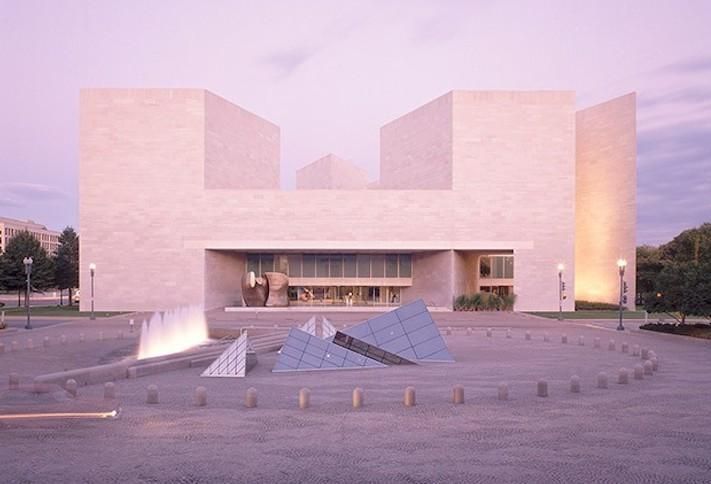

National Gallery of Art
The National Gallery of Art’s East Building Location: Washington, D.C. Year Built: 1978 I.M. Pei was joined by President Jimmy Carter in 1978 for the opening of the East Building of the National Gallery of Art. At the intersection of Pennsylvania Avenue and Third Street, the building sits on the inaugural parade route between the U.S. Capitol and the White House. Constructed with pink marble and concrete, the building consists of two triangular structures connected with a triangular glass roof. At the time of its opening, New York Times architecture critic Ada Louise Huxtable praised it as the most important building of the era.
Glass Pyramid At The Louvre

Location: Paris Year Built: 1989 Every year, millions of visitors to the Louvre in Paris walk through the glass pyramid at its entrance, one of I.M. Pei’s most well-known works. French president François Mitterrand commissioned the pyramid’s construction in 1984, and it opened to the public in 1989. The pyramid was constructed with glass and metal poles. It stands 71 feet tall and has a square base with sides of 112 feet. Before the museum even opened, it was a hotly debated design, with the modernist class contrasting to the French Renaissance style of the main structure. Some called it “sacrilegious” at the time, but it has since been embraced by (most of) the French.
Jacob Javits Convention Center
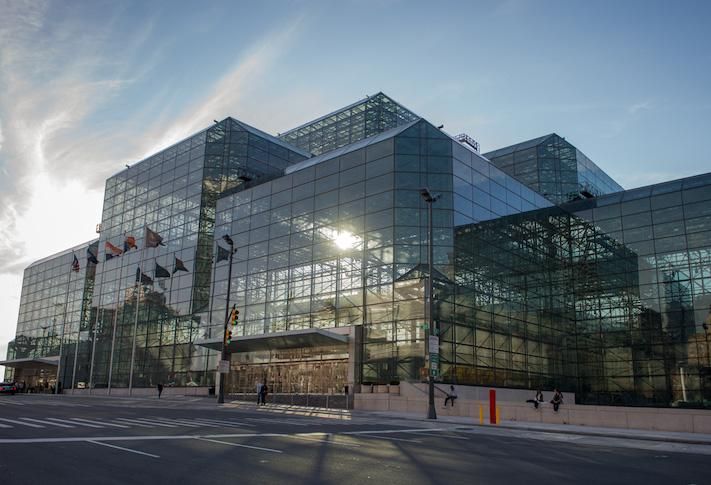
Location: New York City Year Built: 1986 The Javits Center opened in 1986 along the Hudson River in Manhattan. The glass-clad convention center spans five city blocks with over 1.5M SF of total space. The I.M. Pei-designed building includes exhibition halls, meeting rooms, offices, shops, restaurants, a pavilion and a public plaza. A $1.5B expansion of the convention center began in 2017.
Bank of China Tower
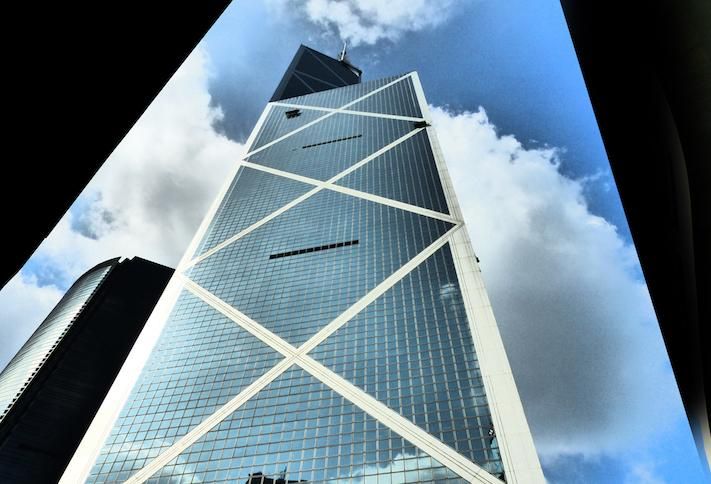
Location: Hong Kong Year Built: 1990 The Bank of China, which Pei’s father once led, commissioned the architect to build a new tower in 1982. The 1,200-foot tower was the tallest building in Hong Kong and fifth-tallest in the world when it opened in 1990. The building features four prism-shaped shafts with a curtain wall of glass and aluminum. Its design blended traditional Chinese elements with modern architecture.
John Hancock Tower

Location: Boston Year Built: 1976 Boston’s 790-foot-tall John Hancock Tower has remained the tallest building in New England since it opened in 1976. The I.M. Pei-designed glass building won the American Institute of Architects’ 25-year award in 2011. But the now-iconic tower faced major challenges during its construction. Glass panels began falling out of the under-construction building in 1973, and the developer was forced to replace all 10,344 panels, delaying its opening by three years.
Rock & Roll Hall Of Fame
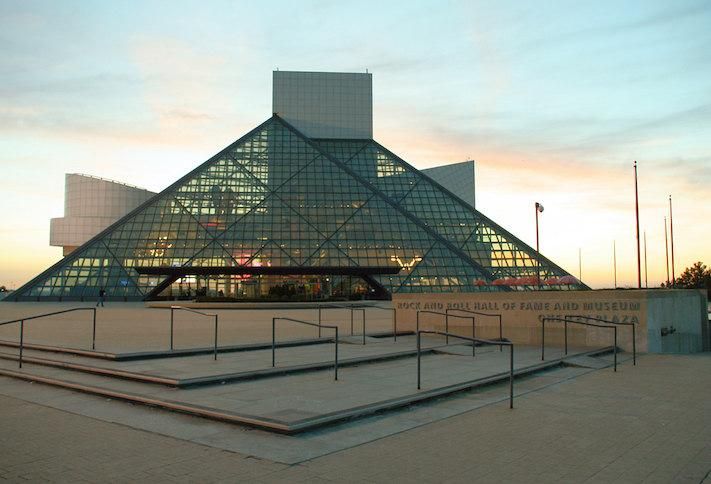
Location: Cleveland Year Built: 1995 Chuck Berry, Bruce Springstein, Bob Dylan and Aretha Franklin performed in 1995 at the induction of the Rock & Roll Hall of Fame, designed by I.M. Pei. The building sits on the edge of Lake Erie in Cleveland. The 150K SF building features a 162-foot-tall tower and Pei’s signature glass pyramid. It has seven levels of exhibition space and a sun-filled atrium that hosts concerts and other events.
Dallas City Hall
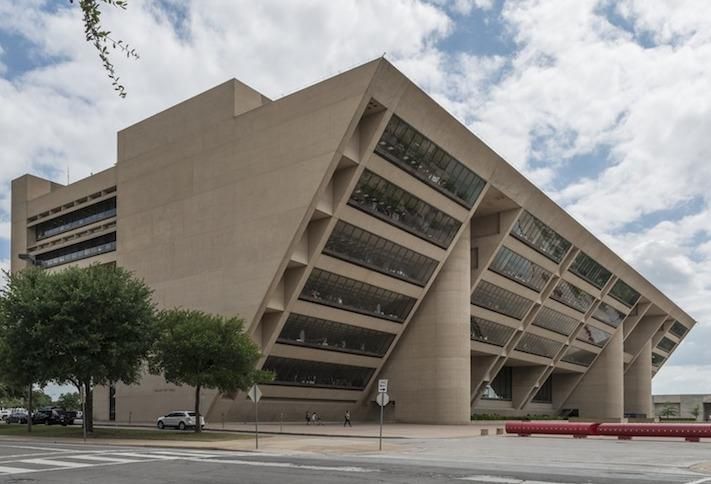
Location: Dallas Year Built: 1990 The municipal seat of government for Dallas opened in 1977. I.M. Pei designed the building with an angled facade and three cylindrical structures that appear to hold the building up, but do not actually bear its load. The city hall is one of several buildings Pei designed in Dallas, including One Dallas Center, Energy Plaza, Fountain Place and the Morton H. Meyerson Symphony Center.
No comments:
Post a Comment